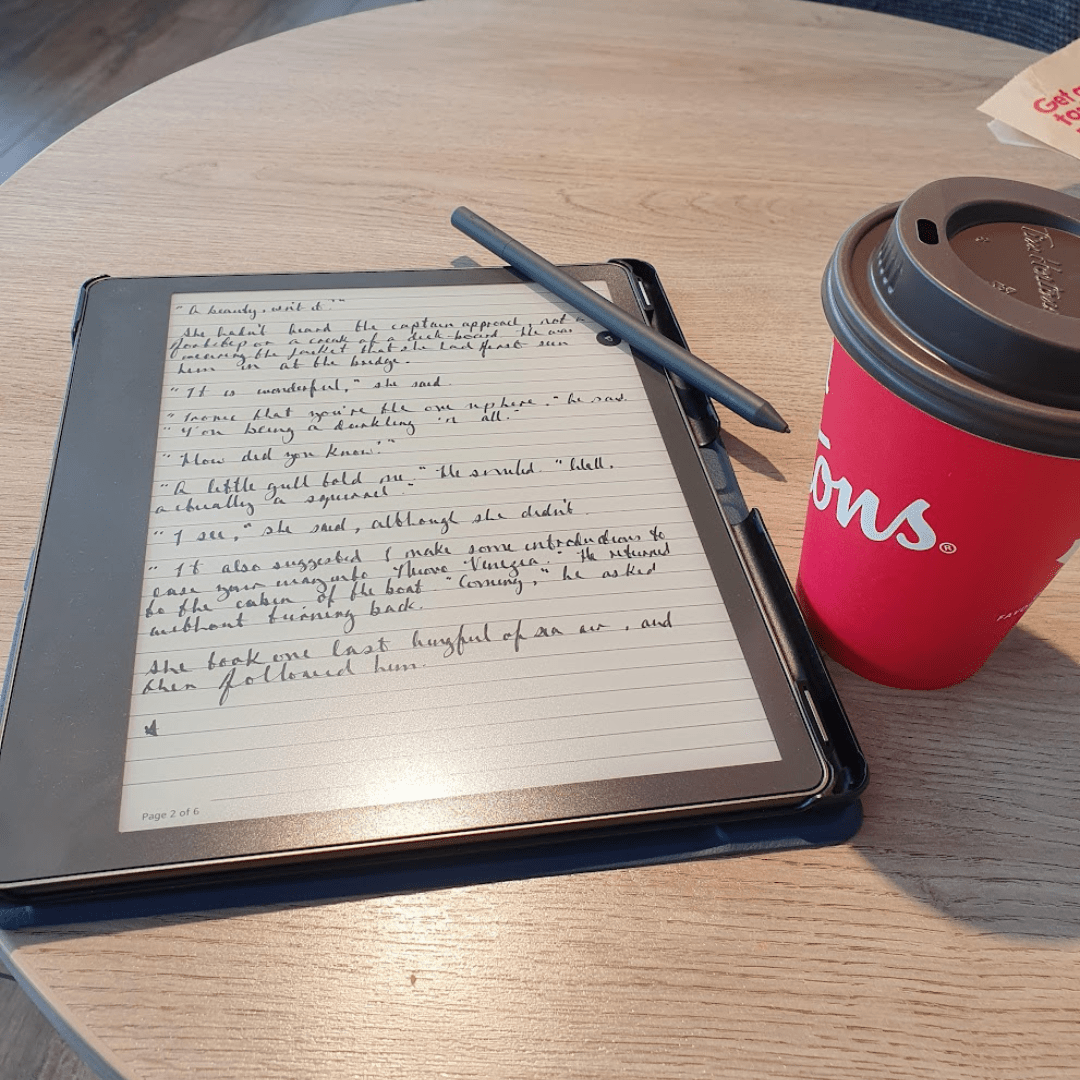Author of the futuristic fantasy series The Haven Chronicles, Fi Phillips shares her tips on breaking that pesky creative block.
Picture this. You’re sat at your desk, all ready to create. Your hands hover over your keyboard or you hold a pen in your hand and have an open notebook. You know what you want to write. The words are on the tip of your imagination. You can picture the scene you’re about to create and…
Nothing happens. Somewhere between the rich imaginings in your brain and using your fingers to bring that story to life, you stall. Maybe it’s doubt in your writing ability. Perhaps you haven’t fully fleshed out the scene in your mind. Whatever the reason, your creative output grinds to a halt.
What do you do? You could battle on. You could give up. For me, the answer is often to escape my desk and head out in search of inspiration.
Writing Elsewhere: What I’ve Found
Getting out and about doesn’t mean forgetting your stories and doing something else. No, instead it’s a case of changing where you write.
(Photos provided by Fi, showing her ‘elsewheres’)
Heading out for coffee

Working on my novels Magic Bound and Haven’s Deceit, I definitely experienced writing slumps. For me, the answer was to take my Kindle Scribe to a local coffee house. We have a lot of cafés near my home, so I share the love by trying them all now and then.
I could have taken some notes with me but instead I decided to write without reference to character back stories or what happened in the previous novels. I just concentrated on the scene I was struggling with. Watching people go by, listening to the coffee shop hubbub, and relishing a flat white or two, I rediscovered my inspiration and wrote—a lot.
A holiday by the sea
Struggling with a short story and a stupid sick bug, a family trip to Hafan y Mor in Wales was just the break I needed: both health- and creativity-wise.
With notes on my Kindle Scribe, this time I wrote in a note pad. I don’t know about you, but I find great joy in writing fiction by hand—even if nobody else can read my handwriting. Strolls on the beach and writing away from the mental confines of my computer revived my enthusiasm for storytelling. Before the weekend was over, the first draft of my short tale was complete.

Why does a change of scenery work?
Let’s look at the ways that a change of scenery could help you get over a writing hurdle.
Break free from routine
“Insanity is doing the same thing over and over again and expecting different results.”
Albert Einstein or Rita Mae Brown
It’s easy to become hemmed into writing routines. You sit at the same desk, use the same tools, and have the same expectations. Over time, familiar patterns can begin to stifle your creativity.
A change of scenery disrupts these routines and helps you to see your creative projects with fresh eyes. You return to appreciating the wonderful worlds you have and will create.
Engage the senses
“Description is what makes the reader a sensory participant in the story.”
Stephen King
A change of scenery is bound to bring different sights, sounds, and smells. The aroma of coffee, the murmur of conversations, or the feel of a spring breeze on your skin can inspire your imagination. These sensory experiences will breathe life into your descriptions, making your settings and characters more vivid.
Remove the everyday distractions
“You can always find a distraction if you’re looking for one.”
Tom Kite
Familiar environments usually come with familiar distractions. There’s that pile of ironing to tackle, emails to answer, or the lure of social media. A change of scenery can help you to escape these interruptions and fully focus on your writing.
Practical tips for writers
So how can you take advantage of a change of scenery to enhance your writing process and productivity?
- Identify local spots that you could get away to. It might be a café, the library, the park, or somewhere else you could settle down to write. Try a few out to find your favourite.
- Actively plan writing day trips. While a week long writing retreat might be out of the question or your budget, taking yourself off for a day (with or without the family and a picnic) can be just the thing you need to revive your creative muscle.
- Put a little thought into how you can write away from your desk. What tools suit you best and how are you going to carry them around? Do you need to power your device or will the charge last for the whole writing session? You might use a pen and pad, a tablet, a Kindle Scribe type of device that you can write on, a laptop, or a way to record your voice. What feels right?
- Set goals for your out and about writing. Do you want to write a full chapter, finish a plan for your latest novel, or edit a first draft? Setting a goal will help you focus on what you want to achieve.
Embrace the journey

When you feel that you just can’t pull yourself out of that writing slump, downing tools and heading out the door may well be the answer. A change of scenery can reframe your approach to your story, reinvigorate your powers of description, and help you focus solely on the words. Grabbing a moment for yourself is bound to be good for your mental health too. If it helps in no other way, a change of scenery can provide an ideal photo opportunity for your social media. What’s not to like about any of that?
(Photo by Brad Neathery on Unsplash)


